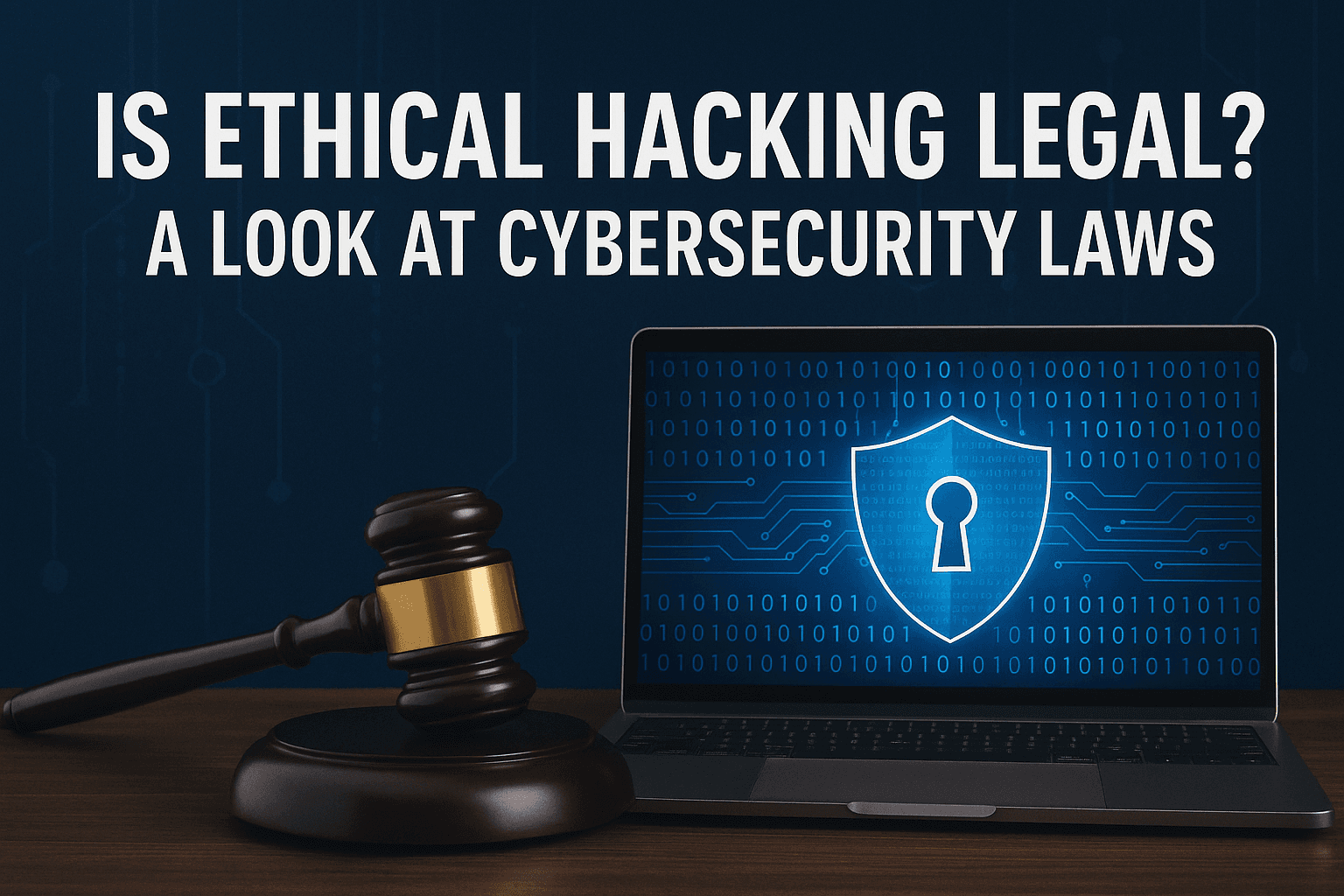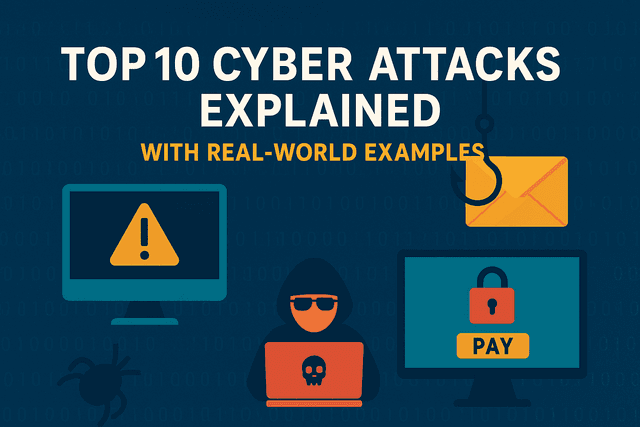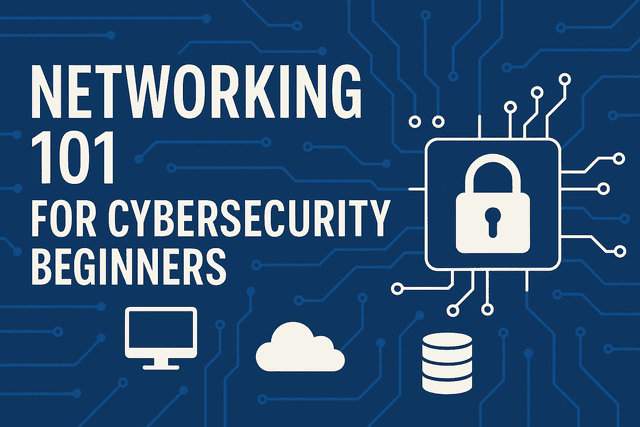Is Ethical Hacking Legal? A Look at Cybersecurity Laws

In today’s digital world, the word “hacker” often sparks fear—images of cybercriminals stealing data, shutting down networks, or spreading ransomware. But not all hackers wear the same hat. Some use their skills to protect rather than attack.
This is where ethical hacking comes into play. Ethical hackers, also known as “White Hats,” use the same techniques as malicious hackers but with one crucial difference: they have permission. They help organizations find and fix security flaws before the bad guys exploit them.
However, a question arises: Is ethical hacking always legal? The answer is not as simple as “yes” or “no.” It depends on intent, authorization, and the laws of the country where the hacking takes place.
Understanding these legal boundaries is critical for anyone interested in cybersecurity, ethical hacking, or simply protecting their digital world. Let’s break it down step by step.
What is Ethical Hacking?
Ethical hacking (also called penetration testing) is when a hacker is allowed to test a system, network, or application to find security weaknesses. These hackers use the same techniques as cybercriminals, but they do it to protect rather than harm.
Ethical hackers usually work under a contract that clearly defines what they can and cannot test. This legal agreement is what makes their work safe and lawful.
Characteristics:
- Always work with permission and a legal contract
- Help organizations identify and fix vulnerabilities
- Follow ethical codes and legal rules
- Often hold professional certifications (CEH, OSCP, CISSP, etc.)
Example: A hospital hires an ethical hacker to simulate a ransomware attack. The hacker finds weak points, reports them, and helps the hospital strengthen its defenses.
Why Permission is the Key Factor
No matter where you are in the world, the golden rule is: hacking without permission is illegal.
Even if your intention is to help, you could still face:
- Criminal charges
- Heavy fines
- Jail time
To stay safe, ethical hackers must:
- Get written permission before testing.
- Follow the scope agreed with the organization.
- Respect privacy laws like GDPR.
- Never go beyond what is allowed.
Global Cybersecurity Laws Governing Ethical Hacking
While ethical hacking is recognized as an important defense against cybercrime, the legal treatment of hacking varies widely from country to country. These differences are often shaped by how much cybercrime affects the nation, how advanced its technology infrastructure is, and whether lawmakers have created specific regulations for security testing.
In many countries, strict cybercrime laws exist that clearly define what is legal and what is not. These laws usually make unauthorized access a serious offense, regardless of intent. In such places, ethical hacking is only legal when performed with explicit written permission from the system owner. This permission is usually outlined in a contract or bug bounty program.
Other countries may not have clearly defined rules for ethical hacking. Instead, they rely on general cybercrime laws and internal security policies to determine what is acceptable. In these regions, organizations and hackers depend heavily on formal agreements and international standards (such as ISO/IEC 27001 or EC-Council codes) to guide their actions.
There are also nations where cybersecurity laws are still developing. In these areas, ethical hacking is neither fully regulated nor widely understood, so hackers must be extremely cautious. They typically follow international ethical guidelines and make sure all work is covered by legal contracts to avoid legal uncertainty.
Key Point:
Regardless of where you are in the world, unauthorized hacking is illegal. Ethical hacking is only safe when:
- It is done with explicit permission.
- The scope of testing is clearly defined in writing.
- Privacy and data protection laws (like GDPR) are respected.
- International ethical standards are followed.
Example: Even in countries without detailed cybersecurity laws, a hacker who works under a signed contract and follows agreed boundaries is protected. Without these safeguards, they risk facing legal consequences.
Unauthorized Hacking – Why It’s Risky
Some hackers, known as Gray Hat, test systems without permission and later report vulnerabilities. While they may not have bad intentions, their actions often break the law.
Characteristics:
- Operate without explicit authorization
- Often disclose flaws to organizations or the public
- Can unintentionally cause damage
- Risk legal consequences despite good intentions
Example: A Gray Hat hacker finds a flaw in a government website and reports it, but because they accessed the system without consent, they could still face legal action.
Why Cybersecurity Laws Exist
Cyber laws are not just to punish hackers; they also:
- Protect businesses and individuals from cyber threats
- Set clear rules for ethical testing
- Ensure hackers work within safe, legal limits
- Promote trust in digital systems
Example: A penetration tester working under a signed agreement is protected legally, while someone doing the same without consent could be charged with cybercrime.
Conclusion
Hacking is not automatically illegal—what matters is your intent and whether you have permission.
- Ethical hacking is legal and highly valuable when done with consent.
- Unauthorized hacking (even with good intentions) is illegal almost everywhere.
For beginners who want to become ethical hackers:
- Learn the laws in your country.
- Get proper certifications.
- Always work under authorized scopes.
By understanding both the technical and legal sides of hacking, you can help make the digital world safer—without putting yourself at risk.


